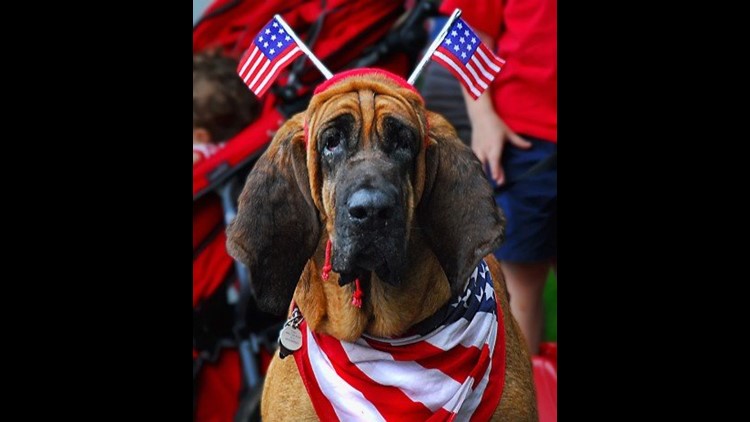More dogs run away from home on the Fourth of July than any other day of the year. Experts say for many dogs, the squeal, boom, and pop of fireworks triggers their innate flight instinct. Experts suggest leaving your pets at home, with family members, or at a kennel instead of taking them to a city firework show or having them around the house when fireworks are being shot.
The Fourth presents other dangers for your dogs as well, aside from the flight risk of fireworks. Here are a few tips from the experts on how to keep your pets safe while the family celebrates freedom.From the ASPCA:
- Never leave alcoholic drinks unattended where pets can reach them. Alcoholic beverages have the potential to poison pets. If ingested, the animal could become very intoxicated and weak, severely depressed or could go into a coma. Death from respiratory failure is also a possibility in severe cases.
- Do not apply any sunscreen or insect repellent product to your pet that is not labeled specifically for use on animals. Ingestion of sunscreen products can result in drooling, vomiting, diarrhea, excessive thirst and lethargy. The misuse of insect repellent that contains DEET can lead to neurological problems.
- Always keep matches and lighter fluid out of your pets’ reach. Certain types of matches contain chlorates, which could potentially damage blood cells and result in difficulty breathing—or even kidney disease in severe cases. Lighter fluid can be irritating to skin, and if ingested can produce gastrointestinal irritation and central nervous system depression. If lighter fluid is inhaled, aspiration pneumonia and breathing problems could develop.
- Keep your pets on their normal diet. Any change, even for one meal, can give your pets severe indigestion and diarrhea. This is particularly true for older animals who have more delicate digestive systems and nutritional requirements. And keep in mind that foods such as onions, chocolate, coffee, avocado, grapes & raisins, salt and yeast dough can all be potentially toxic to companion animals.
- Do not put glow jewelry on your pets, or allow them to play with it. While the luminescent substance contained in these products is not highly toxic, excessive drooling and gastrointestinal irritation could still result from ingestions, and intestinal blockage could occur from swallowing large pieces of the plastic containers.
- Keep citronella candles, insect coils and oil products out of reach. Ingestions can produce stomach irritation and possibly even central nervous system depression. If inhaled, the oils could cause aspiration pneumonia in pets.



